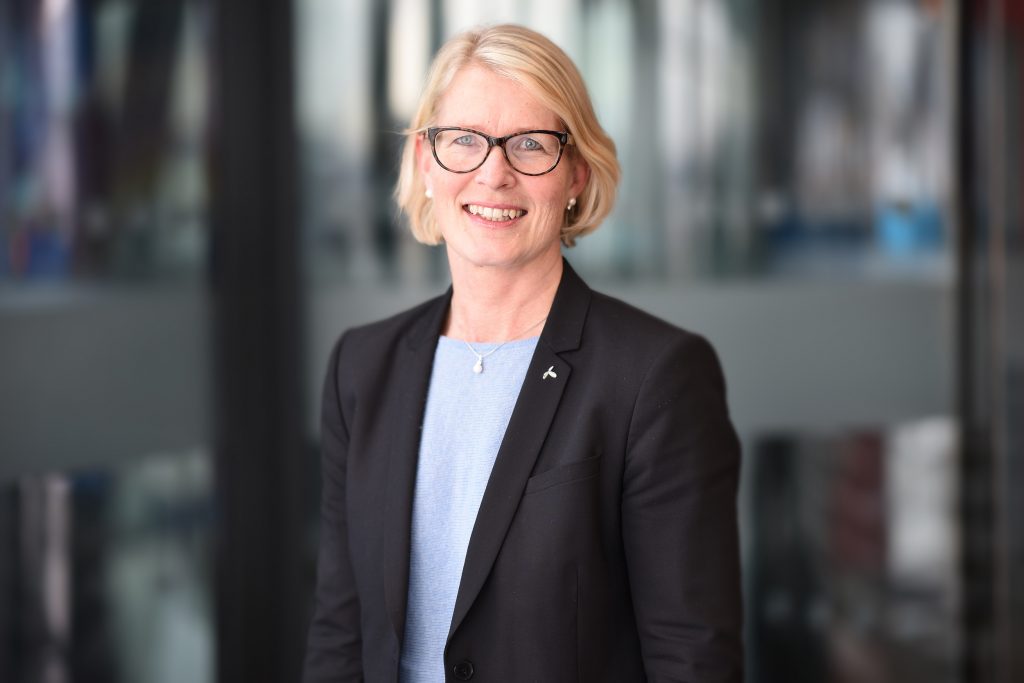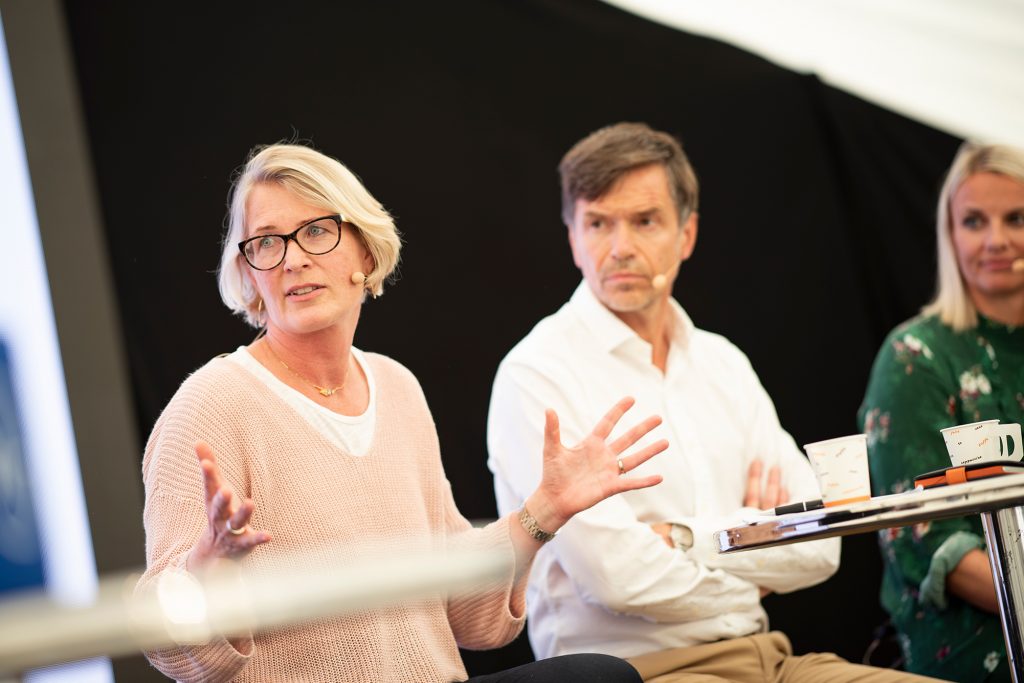Telenor Group’s head of human resources, Cecilie Heuch, on transformation and flexible work.
The economic impact of COVID-19 has increased the pressure on all businesses to digitalize, streamline and modernize their operations. But few companies have responded quite as radically as dtac and the Telenor Group. (Telenor is a major shareholder of dtac.) Unlike Google or Facebook, which extended their work from home policies to late 2021, the Telenor Group joined organizations such as Fujitsu and Twitter in saying flexible work is here to stay indefinitely. To better understand how COVID-19 and digital transformation are radically transforming our work lives, we spoke to the Telenor Group’s Head of Human Resources, Cecilie Heuch.
Tight Loose Tight
Fittingly, dtacblog spoke to Ms. Heuch via videoconferencing for our monthly column with global leaders, Viewpoint. Although working from her home in Oslo that morning, she was preparing to pop into the office for a meeting—the exemplification of the flexible work trend.

“What keeps me up at night these days is making sure that people stay safe and healthy,” she said. “We work hard to provide them with the required necessities to protect them. But there is also an emotional aspect. People are worried about their families, about schooling. It has led to a lot of challenges.”
In June 2020, Telenor CEO Sigve Brekke announced flexible work was here to stay for the group’s 19,000 employees, while also recognizing that implementation would depend on the specificities of different markets and roles.
“We are presently a little bit between the new and the old. Due to COVID regimes we cannot fully embrace flexible work the way we’d like. But we are piloting it in several parts of the organization. This new normal will also include a rethink of how we are organized, of touch-free operations and more digitalized customer journeys,” said Ms. Heuch.
Although it stemmed from the need to maintain social distancing among employees, flexible work has now become an ambition for Telenor to boost accountability and empowerment among its employees. Mr. Brekke explained that the new ways of work would require a management style called “tight-loose-tight”: tight on expectations, loose on how the desired outcome is achieved, tight on measuring results.
“It starts with clear goals and a shared understanding of what will be achieved,” said Ms. Heuch. “Trust- based leadership means managers can’t sit on their team members’ shoulders and micromanage them. At the same time, you need to include the team, accompany your colleagues and boost them up. You don’t just let people wander off!”
Be the Change
In parallel to embracing flexible work, Telenor is forging ahead with its transformation. But the group’s constant focus on digitalization and globalization can sometimes leave employees worried about their future.
“Yes, we have fewer employees year by year because we are digitalizing,” said Ms. Heuch. “But my advice is for employees to cultivate a growth mindset. dtac employees are best in class for Telenor’s 40-hour challenge and they have set an inspiration and example for what is possible. E-learning has provided so many opportunities, it’s a democratization of learning. We shouldn’t underestimate that effect.”
The 40-hour challenge is a call for all employees in the Telenor Group to learn new skills for at least 40 hours each year. Last year, dtac employees studied 61 hours on average.
“In Asia, it’s particularly dynamic with a lot of opportunities. We have proven we can adapt and change and we can do it fast. We’re able to build critical competencies internally and remain relevant to the customer. We can continue that journey, but it does involve a lot of change. It’s also part of the fun—you want opportunities at work. If you have a growth mindset, it’s really fun and inspiring,” she said.
Ms. Heuch also stressed that new tools, doing away with complex processes, reducing bureaucracy, and making decision processes easier will benefit the employees.

Renewed Purpose
In addition to lifelong learning, Ms. Heuch is a firm believer in the power of purpose. The group remains committed to empowering societies through connectivity. But Telenor also has bold targets to reduce its ecological footprint and boost its diversity.
“We started out with a lot of focus on gender balance. For example, we implemented a six-month maternity leave groupwide in 2014. But you are never only a gender. Now, we have a wider diversity agenda: gender, age, nationality, sexuality, ability. We want to encompass the whole person,” she said.
By 2023, Telenor targets 35 percent of non-Nordic nationals and 35 percent women in its senior leadership positions. And Ms. Heuch cites dtac’s CEO, Sharad Mehrotra, as a shining example of the global opportunities offered by Telenor. Mr. Mehrotra first joined Telenor in India, before heading Telenor Myanmar and, since February 2020, dtac.
“We have at least two people in each top team of our business units who are of different nationalities, so from top to bottom we think it’s important for people to be mobile. I would encourage employees in dtac to go abroad and grab opportunities. You don’t have to take your family for three years. There are many ways of gaining this cultural knowledge. And getting exposed to that will make you better at your job on your return,” said Ms. Heuch.
In spite of a changing world, Telenor’s core purpose has never rung more relevant: “Empowering Societies. Connecting you to what matters most.” And Ms. Heuch sees the need for purpose growing in importance, particularly among millennials.
“During COVID, I’ve never seen such pride among telco employees, who were supporting societies with our networks. We were defined as a critical industry in many countries. Schools and work were able to continue because of good networks. This pride, that feeling inspired so many employees,” she said.




